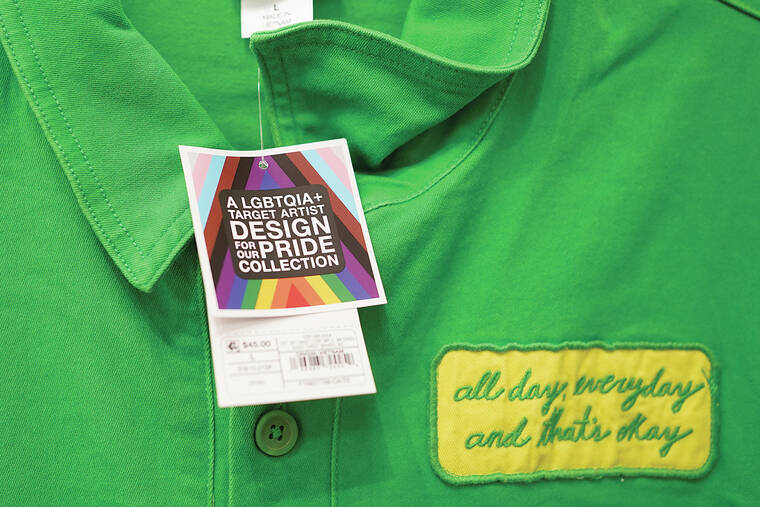Target on the defensive after removing LGBTQ+-themed products
NEW YORK — Target once distinguished itself as being boldly supportive of the LGBTQ+ community.
Now, it has tarnished that status after removing some LGBTQ+-themed products and relocating Pride Month displays to the back of stores in certain Southern locations in response to online complaints and in-store confrontations that it says were a threat to employees’ well-being.
Target is facing a second backlash from customers who are upset by the discount retailer’s reaction to aggressive, anti-LGBTQ+ activism, which has also been sweeping through Republican state legislatures. Civil rights groups chided the company on Wednesday for caving to anti-LGBTQ+ customers who tipped over displays and expressed outrage over gender-fluid bathing suits.
“Target should put the products back on the shelves and ensure their Pride displays are visible on the floors, not pushed into the proverbial closet,” Human Rights Campaign president Kelley Robinson said in a statement. “That’s what the bullies want.”
The uproar over Target’s Pride Month marketing — and its response to critics — is just the latest example of how companies are struggling to cater to different groups of customers at a time of extreme cultural divides, particularly around transgender rights.
Bud Light is still dealing with the fallout from its attempt to broaden its customer base by sending transgender influencer Dylan Mulvaney a beer can with her face on it, which Mulvaney then displayed in an Instagram post, igniting the backlash.
Bud Light’s parent company is tripling its U.S. marketing spending this summer as it tries to restore lost sales.
In Florida, Disney has been engaged in a legal battle with Gov. Ron DeSantis since expressing opposition to the state’s classroom limits on discussing gender identity and sexual orientation.
Allen Adamson, the co-founder and managing partner of the marketing firm Metaforce, said Target should have thought through the potential for backlash and taken steps to avoid it, like varying the products it sells by region.
“The country is far less homogenous than it ever was,” he said. “For any brand, it’s not ‘one size fits all’ anymore.”
Shares of Target, which is based in Minneapolis, fell nearly 3% on Wednesday.
According to a 2021 Gallup poll, 21% of people in Generation Z identify as lesbian, gay, bisexual or transgender, compared with 3% of Baby Boomers. Gallup has also found that younger consumers are most likely to want brands to promote diversity and take a stand on social issues.
“Pulling back is the worst thing that they could have done,” said Jake Bjorseth, who runs trndsttrs, an agency helping brands understand and reach Gen Z customers.





